 Ch-ch-ch-ch-changes!
Ch-ch-ch-ch-changes!
Viewing: Blog Posts Tagged with: comics journalism, Most Recent at Top [Help]
Results 1 - 6 of 6
Blog: PW -The Beat (Login to Add to MyJacketFlap)
JacketFlap tags: comics journalism, Comic Book Resources, Top News, Jonah Weiland, Comings & Goings, Add a tag
Blog: PW -The Beat (Login to Add to MyJacketFlap)
JacketFlap tags: how the sausage is made, Process, Meta, Comics Media, comics journalism, Working for a Living, Top News, Add a tag
For the past few days there has been a kerfuffle in the extremely high profile, glamourous and profitable world of comics journalism. Rather than comment on this hot mess, I'm going to talk about why it happened. And what we an do to improve things.
Blog: PW -The Beat (Login to Add to MyJacketFlap)
JacketFlap tags: The Beat, Diversity, ethics, Legal Matters, Comics Still Wonderful In Spite Of It All, comics journalism, Top News, The Legal View, SDCC '15, Controversy!, Add a tag
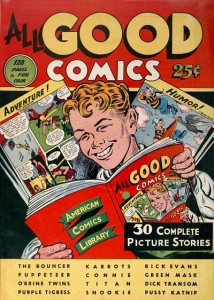 Reflecting on The Beat’s comics journalism ethics panel tonight at San Diego Comic-Con, my thoughts keep going back to the comics community – who we are, where we’re going, and what can keep us all connected however much we grow.
Reflecting on The Beat’s comics journalism ethics panel tonight at San Diego Comic-Con, my thoughts keep going back to the comics community – who we are, where we’re going, and what can keep us all connected however much we grow.
For all the online conversation, the panel went without incident. I ended up reluctantly having to cut off someone who I learned afterward was from the Gamergate perspective after his second or third point, but that was due to the program’s time limits and not any issue with his questions, which were thoughtful and well-received by the panel — the discussion of how Agent Carter makes a woman’s agency its central them was quite illuminating.
Jamie Coville will no doubt post the whole audio, so it’s only a matter of time before you too can hear the panelists’ brilliant insights, interrupted on occasion by my not-so-brilliant calling out their names: Heidi MacDonald, our intrepid leader; Donna Dickens, James Viscardi, Casey Gilley, Joe Illidge, and Brett Schenker.
One of the things that was great about this panel was that the speakers grounded their discussion of ethics in the comics community, and in so doing they expressed the essence of ethics itself. A lot of folks think of ethics primarily in terms of rules or abstract decision making principles, such as avoiding conflicts of interest or protecting the environment. Those can be important, but ethics is fundamentally an extension of ethos – it’s about who we are as individuals and groups.
And as becomes more than evident at conventions, comics people — and gamers, genre film & theater folks, and everyone else in this extended happy network of geeks, nerds, and dorks – are more than just faceless consumers. We’re a community connected by shared interests and values, and we’re all part of the conversation, not just the people who self-identify as journalists or scribble online. We don’t agree on everything, of course, but as the panel emphasized, by following the fundamental ethical principles of understanding and mutual respect, we can talk about our differences in ways that only strengthen our bonds.
However, as the panel also noted, our community of communities is growing to scale — our little niche interests have gone truly global, and even as we engage each other over whether various items and actions truly reflect our communal values, millions of people are coming to the stuff we like without a thorough grounding in our up ’til now shared experience, let alone the unassailable arguments as to why Crisis on Infinite Earths was the greatest crossover of all time. The influx of fans has tremendous potential for extending our community’s influence, but it also brings with it a heightened risk of fragmentation to the point of dissolving, or at best reducing to a network of shared interests that doesn’t go beyond what we see on a screen.
So we talk and write, explain and argue, with neutral just-the-facts articles when they help us gather useful knowledge and principled arguments for what we believe is right. That’s what we’ll all keep doing online and ultimately, that’s what makes comic-cons so important. Just as they gave us a chance to talk about what we talk about when we talk about ethics, they provide a forum of all of us, old and new, to learn about each other and ourselves.
Blog: PW -The Beat (Login to Add to MyJacketFlap)
JacketFlap tags: Kickstarter, comics journalism, Top News, Crowdfunding, Jess Ruliffson, Isabel Greenberg, Tom Humberstone, Add a tag
Let’s continue this power hour of Kickstarting comics by turning to Modern Times, a new publication looking to mix journalism, comics, and photography.
By Olivier Kugler
Set up by Katherine Hearst and featuring contributors including Isabel Greenberg, Jess Ruliffson, Tom Humberstone and Fionnuala Doran, Modern Times is looking to fund a first print run. The first issue appears to be completely mapped out by this point, and will be themed around a discussion of housing, and issues relating to it. Written articles will feature alongside comics journalism, to create a multimedia periodical which looks at politics in the UK and Ireland.
By Madeline Swift
The project is looking for £1000 to launch the first issue, and if successful will be looking for submissions for the second issue, which would then follow on.
Blog: PW -The Beat (Login to Add to MyJacketFlap)
JacketFlap tags: Indie Comics, comics journalism, Top News, non-fiction comics, ACA Residency, Jess Ruliffson, Joe Bonham Project, Studio YOLO, News, Graphic Novels, Comics, Indies, Add a tag
Jess Ruliffson is an illustrator and non-fiction graphic novelist, increasingly wearing the hat of a comics-medium journalist. She’s working on a graphic novel based on interviews with veterans of the war in Iraq and conflicts in Afghanistan for the Joe Bonham Project, giving wounded vets a chance to tell their own stories of trauma and resilience (as seen above). Ruliffson took part in the Atlantic Center for the Arts Residency in October 2012 and became one of the founding members of Studio YOLO, a confederacy of artists who pose monthly comics-drawing challenges. Her art work is heavily based on realism in line-drawing, but also possesses a unique stillness and reflective quality suited to personal narratives, either her own or drawn from shared stories. You can view her ongoing work at both her website and blogspot.
Blog: PW -The Beat (Login to Add to MyJacketFlap)
JacketFlap tags: comics journalism, Top News, Jess Ruliffson, Interviews, Add a tag
by Dre Grigoropol
New York City based cartoonist Jess Ruliffson presented her collection of comics for her upcoming graphic novel at The Drawing Center in Soho on February 13th 2013. Though her comics are biographical, they are not about her own life. She documents the real stories of people who have survived life-threatening situations and has interviewed hurricane survivors, veterans of the Iraq and Afghanistan wars, and soldiers who are still enlisted. At The Drawing Center, she presented her accumulated work, which has been associated with the Joe Bonham Project since 2010. This project involved Ruliffson visiting wounded veterans at Walter Reed Military Medical Center and documenting their stories in comics form.
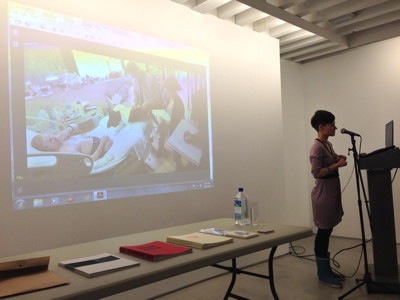
Ruliffson works in a genre of comics-journalism, which isn’t as popular as other varieties like autobiographical comics. That is probably because her work focuses on topics that are serious and often tragic. This type of work gives reader a rare insight of what stories these people have to share.
Ruliffson kindly agreed to answer some questions for The Beat about what inspires her work.
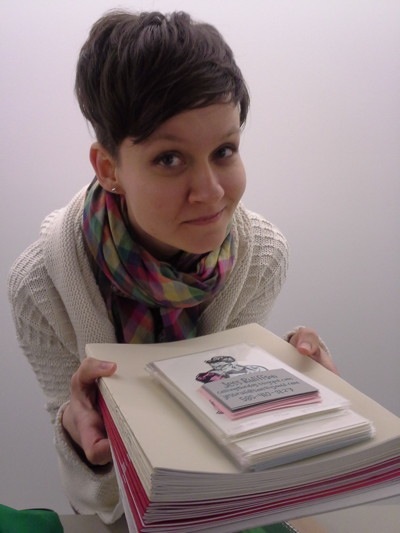
Dre Grigoropol: What gave you the idea to write comics about veterans?
Jess Ruliffson: I read a great book by Sebastian Junger called War. He and the late war photographer Tim Hetherington also created the documentary Restrepo––I highly recommend them both––they are about time they spent at a remote outpost in the Korengal Valley in Afghanistan. There’s a bunch of young men living day to day and doing their jobs as soldiers, and it’s crazy. The thing that struck me about both pieces was that they were pretty objective and still so powerful. Junger and Hetherington went there and just reported what was going on without much of a slant. I never read nonfiction like that before. It’s surreal that there are people that do this stuff. It just woke me up. I didn’t know what to write about when I tried to make comics before, and it seemed like a good way to work, by listening to other people tell stories.
DG: Where do you go to find the people you interview?
JR: I asked friends-of-friends and just started being more inquisitive. Some of the veterans are friends from high school, but many are new acquaintances. I met one veteran in the School of Visual Arts silkscreen lab. The first person I interviewed for the project, I heard him in an interview on my banjo teacher’s podcast, Down Home Radio Show. He’s a gifted storyteller and I knew as soon as I heard him I had to meet him. By luck, he was playing at the Brooklyn Folk Festival a few months after I had the idea, so I asked my banjo teacher to introduce us. He ended up being a really great guy. I’ve been recently working with veterans participating in the NYU Veteran Writer’s Workshop, I met them through Peter Catapano. He was a panelist at the Joe Bonham Project opening in Washington D.C., and invited me to a reading these writers were putting on later that week. So, some of it is luck, but a lot of it is just putting yourself out there and seeing what you get.
DG: How do you curate what goes in the comic?
JR: I usually gather interviews via email or transcribe audio recordings. Once I have all that material, I go through and highlight things that seem very visual or very interesting ideas, or some main theme that keeps recurring. Then I figure out how to put those interesting parts together in a narrative arc that seems somewhat chronological. I do my best to quote directly and let the oral histories speak for themselves.
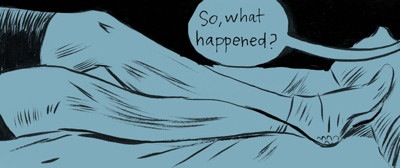
DG: Why is sharing the stories of veterans important to you?
JR: I was one of those people who thought I was anti-war, and then I realized I was just apathetic, which isn’t the same thing. Once I read War, I really wanted to do something. It just all of a sudden seemed really important to me. I decided to go to art school, and at the same time many of my peers decided to fight in wars. I realized that just because I wasn’t participating didn’t mean the wars didn’t affect me. I felt responsible and convicted after ignoring it for so long. It also seemed that a lot of these stories weren’t making the news. A lot of veterans are activists, musicians, writers, and artists, and not the one-dimensional, pro-gun, all brawn/no brains combination I had come to think was requisite of veterans.
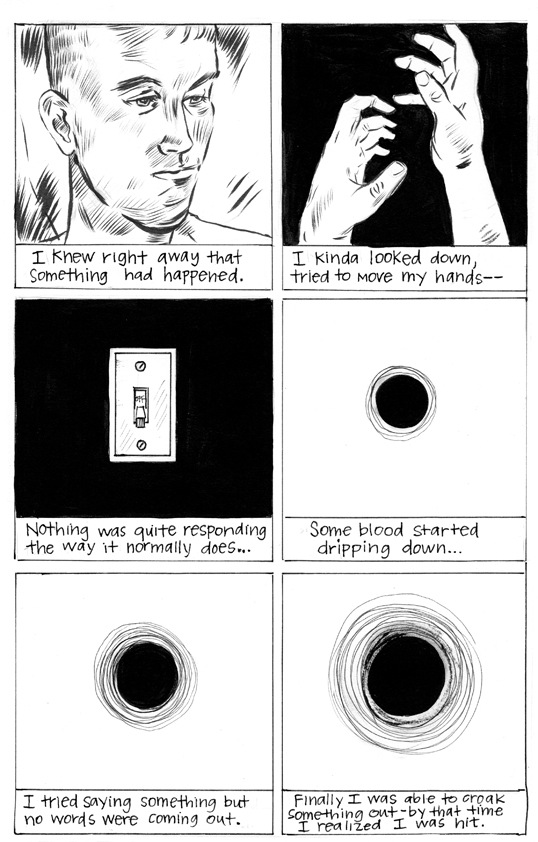
DG: Did you foresee the path of comics journalism as the path you would take in the past? Or did it happen haphazardly?
JR: I didn’t know what comics journalism was until I started making comics. I read Josh Neufeld’s A.D. a few years ago, which I found so thoughtful and kind. It really made me feel good that a New Yorker cared about my home and wanted to report about it. I moved to NYC from Biloxi, Mississippi the day the hurricane hit in 2005, and it felt like no one really understood the devastation. I think when people take an interest in other people’s stories, that’s when good journalism happens. I didn’t see myself as a journalist until recently, because I’m not formally trained. I guess I started making these pieces and then hearing about other creators making nonfiction comics. I got in touch with Josh Kramer who edits The Cartoon Picayune and Erin Polgreen, who edits Symbolia, and have met a lot of nonfiction comics creators through those outlets. It’s been cool discovering that the community is much larger than I ever thought, and that lots of my comics peers are excited about this stuff. I feel like I showed up to the party at the right time!
DG: Are there any comics that are in the category of comics journalism that you would recommend?
JR: I love Joe Sacco but have never read an entire book of his, I always check them out from the library and just look at the pictures. He’s incredible. I think there’s a lot to learn by just looking at the pictures. I tell all of my writer friends to read David Mazzucchelli’s comic adaptation of Paul Auster’s City of Glass, it’s really abstract and really smart, though fiction and non-comics journalism. I like Guy Delisle’s Pyongang, it’s surprisingly funny.
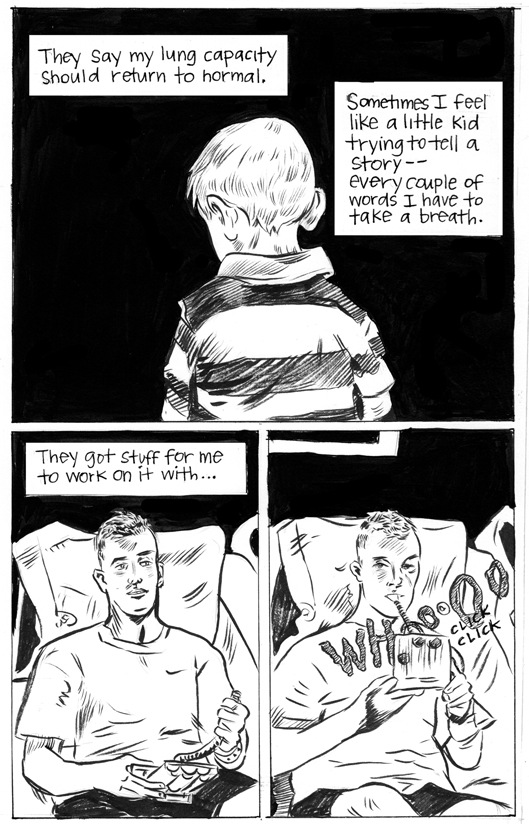
DG: Can you tell us a little about your future comics projects?
JR: I just wrapped up a piece for Columbia University, about their duPont-Columbia Awards ceremony, which is the highest honor of broadcast journalism. I attended this year’s ceremony and created a short nonfiction comic piece about it for their website. It was a lot of fun and so inspiring. I’m also working on short, one-page veteran stories right now, as well as a longer piece for Symbolia Magazine. I want to make shorter, funny pieces. I’ve been collecting funny things my friends say. I also had an idea of a comic series where I go on dates with Jesus and he gives me advice about guys. I’ll let you know how it goes, or you can read my blog: callingthedog.blogspot.com.
Jess Ruliffison’s graphic novel is planned to debut in 2014. Keep tabs on this interesting and dedicated artist by visiting her site: jessruliffson.com.
[Dre Grigoropol is an indie cartoonist and blogger. Her work can be viewed at www.dretime.org. Follow her on Twitter at @dretimecomics. Photos by Dre Grigoropol Photographs by James Tehero and Dre Grigoropol Images via Jess Ruliffson]






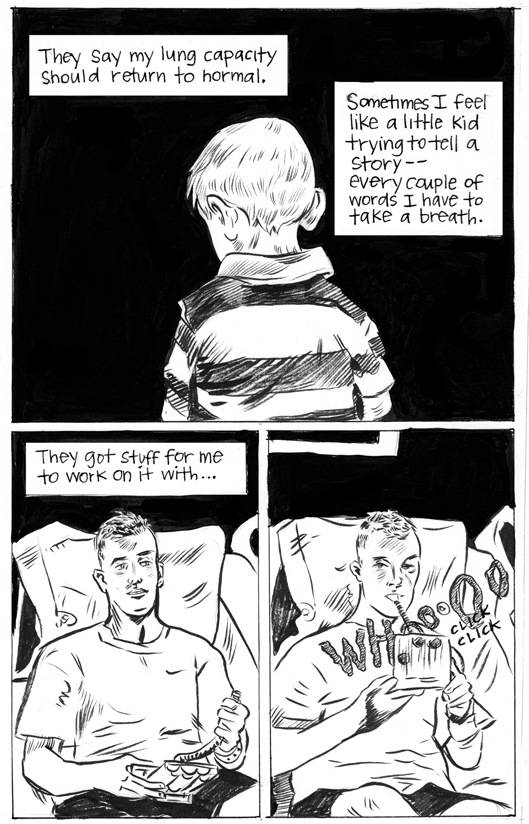
That’s a Huge accomplishment for what was originally a Kingdom Come Message Board and links to other websites (“Jonah’s Crappy Page of Links.”
If you find it of note, BC has the letter that Jonah sent out to CBR employees.
This is another important News Editor shake-up that Heidi has been reporting on.